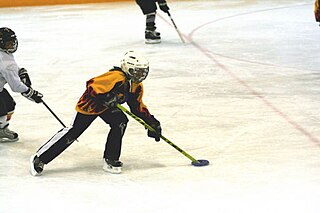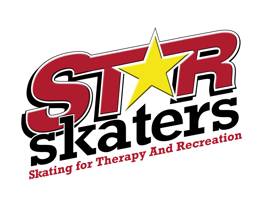
Parasports are sports played by people with a disability, including physical and intellectual disabilities. Some parasports are variations on existing able-bodied sports, while others such as goalball have been specifically created for persons with a disability and do not have an able-bodied equivalent. Disability exists in four categories: physical, mental, permanent and temporary. At a competitive level, disability sport classifications are applied to allow people of varying abilities to face similar opposition.

The International Paralympic Committee is an international non-profit organisation and the global governing body for the Paralympic Movement. The IPC organizes the Paralympic Games and functions as the international federation for nine sports. Founded on 22 September 1989 in Düsseldorf, Germany, its mission is to "enable Paralympic athletes to achieve sporting excellence and inspire and excite the world". Furthermore, the IPC wants to promote the Paralympic values and to create sport opportunities for all persons with a disability, from beginner to elite level.

Ice hockey tournaments have been staged at the Olympic Games since 1920. The men's tournament was introduced at the 1920 Summer Olympics and was transferred permanently to the Winter Olympic Games program in 1924, in France. The women's tournament was first held at the 1998 Winter Olympics.
Sandra "Sandy" Dukat is an American Paralympic athlete. Born with proximal femoral focal deficiency, she had her right leg amputated above the knee at the age of four. She has competed internationally in alpine skiing, swimming and triathlon. As of February 2013, she holds the marathon world record for above-knee amputee women.

Sledge hockey is an adaptation of ice hockey designed for players who have a physical disability. Invented in the early 1960s at a rehabilitation centre in Stockholm, Sweden, and played under similar rules to standard ice hockey, players are seated on sleds and use special hockey sticks with metal "teeth" on the tips of their handles to navigate the ice.
Power Hockey also known as Powerchair Hockey is a competitive, fast-paced hockey game based on the use of a power wheelchair. The foundation of the sport derives from ice hockey and floor hockey, but with adapted rules to enable people with disabilities, who use a power wheelchair, to play and be active in a competitive team setting. The sport is also referred to as Electric Wheelchair Hockey or Electric Wheelchair Floorball in various parts of the world.

The Paralympic sports comprise all the sports contested in the Summer and Winter Paralympic Games. As of 2016, the Summer Paralympics included 22 sports and 526 medal events, and the Winter Paralympics include 5 sports and disciplines and about 72 events. The number and kinds of events may change from one Paralympic Games to another.

Ringette is a winter team sport created in Canada. Ringette players use ice skates and a straight stick to pass and shoot a hollow rubber ring. The sport uses an ice rink as its playing surface and is played on either an indoor or outdoor surface. The game objective is to outscore the opposing team by beating the opponents goaltender. Two teams face off simultaneously. Play involves six players on each team with five skaters and one goaltender for each side. The sport is played predominantly by girls and women.

The Winter Paralympic Games is an international multi-sport event where athletes with physical disabilities compete in snow and ice sports. This includes athletes with mobility disabilities, amputations, blindness, and cerebral palsy. The Winter Paralympic Games are held every four years directly following the Winter Olympic Games. The Winter Paralympics are also hosted by the city that hosted the Winter Olympics. The International Paralympic Committee (IPC) oversees the Winter Paralympics. Medals are awarded in each event: with gold medals for first place, silver for second and bronze for third, following the tradition that the Olympic Games started in 1904.
Taylor Chace is an American ice sledge hockey player.

The 2010 Winter Paralympics Torch Relay was a 10-day event leading up to the 2010 Winter Paralympic Games in Vancouver. It began on March 3, 2010, in Ottawa and concluded at the Games' opening ceremony on March 12. Held entirely within Canada, the host country, it has been described by the Vancouver Organizing Committee for the 2010 Olympic and Paralympic Winter Games as "an important event to connect Canadians to the Games", by "demonstrating the fire inside each individual and how it inspires others".

The United States of America has sent athletes to every celebration of the Winter Olympic Games. The United States Olympic & Paralympic Committee (USOPC) is the National Olympic Committee for the United States.
World ParaVolley, formerly the World Organization Volleyball for Disabled (WOVD), is an international organization that is for people with physical disabilities. It is affiliated with the International Paralympic Committee(IPC). The World Organization Volleyball for Disabled was established in 1981 and was part of the International Sports Organization for Disabled (ISOD). In 1992 the WOVD became its own separate Organization in Barcelona, Spain. The WOVD Headquarters were also established in the Netherlands. The WOVD is responsible for managing and controlling the conduct of international volleyball competitions for men, women and youth. The WOVD also liaises with IPC and with other organizations for people with or without disabilities. The organization adopted its present name World ParaVolley at its 2014 general assembly.

The 1984 Winter Paralympics, then known as The Third World Winter Games for the Disabled, were held in Innsbruck, Austria. The games took place from the 15 until 21 January. Present at these games were 419 athletes from 21 countries, Spain and the Netherlands competing for the first time in the Winter Paralympics, competing in 107 events across 3 sports. The inclusion of Les Austres and Cerebral palsy impairment groups contributing to the distinct increase in athlete participation with the total number of athletes jumping from 229 at Geilo, Norway in 1980.

Following the success of the first ever 1976 Winter Paralympics in Örnsköldsvik four years earlier, Norway was selected to host the Paralympic Games in 1980.

Australia competed at the 2002 Winter Paralympics in Salt Lake City, Utah, United States from 8 March to 19 March 2002. The Salt Lake Paralympics are the eighth such winter games, the first Winter Paralympics ever in North America and the first Winter Paralympics ever set up by an Olympic organizing committee. Although many of the Paralympic expenses were covered by dual planning with the Olympics, organizers still spent about $60 million on the Paralympics, including $5 million on the opening and closing ceremonies. The Salt Lake Games featured 92 events across four sports: alpine skiing, biathlon, cross-country, and ice sledge hockey. The 36 competing countries sent a total of 416 participants. Australia was represented by six male alpine skiers: Peter Boonaerts, Bart Bunting, Michael Milton, Scott Adams, Cameron Rahles-Rahbula, and Mark Drinnan. The medal haul was seven, consisting of six gold and one silver. Australia finished 8th overall in the gold and total medal count, making it the country's most successful Winter Games in terms of gold medals.
Sledge hockey classification is the classification process for people who play ice sledge hockey. The classification system is governed by the International Paralympic Committee Ice Sledge Hockey.

STARskaters.org, a US Paralympic Sport Club, was founded by Sugar Land, Texas businessman Jim O'Neill in 2008. The organization is composed of Houston area volunteers, many of whom are hockey players, skating instructors, figure skaters, coaches and officials.
Manuel Guerra Jr. is an American former ice sledge hockey player. He won medals with Team USA at the 2002 Winter Paralympics and 2006 Winter Paralympics.
Wheelchair sport classification is a system designed to allow fair competition between people of different disabilities, and minimize the impact of a person's specific disability on the outcome of a competition. Wheelchair sports is associated with spinal cord injuries, and includes a number of different types of disabilities including paraplegia, quadriplegia, muscular dystrophy, post-polio syndrome and spina bifida. The disability must meet minimal body function impairment requirements. Wheelchair sport and sport for people with spinal cord injuries is often based on the location of lesions on the spinal cord and their association with physical disability and functionality.